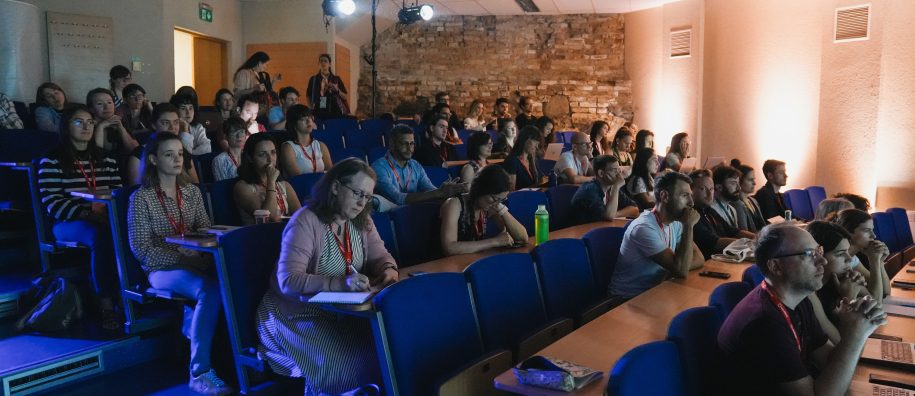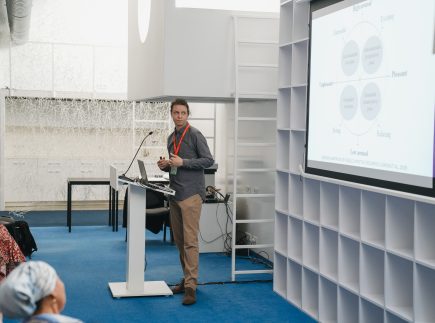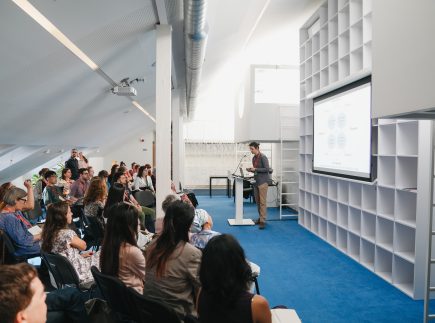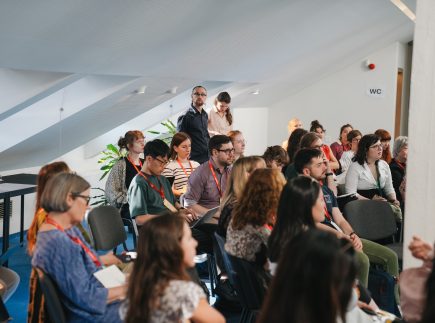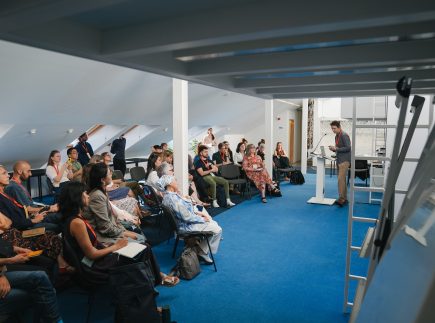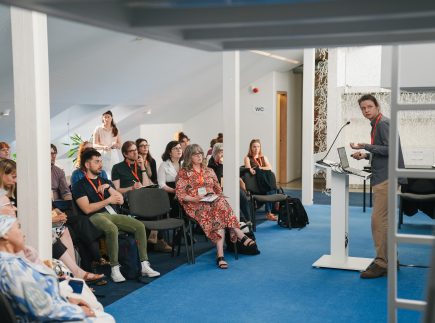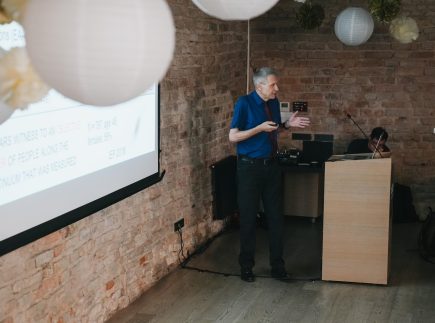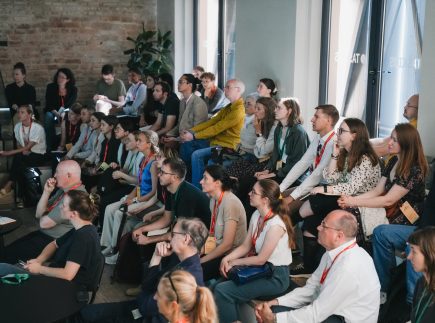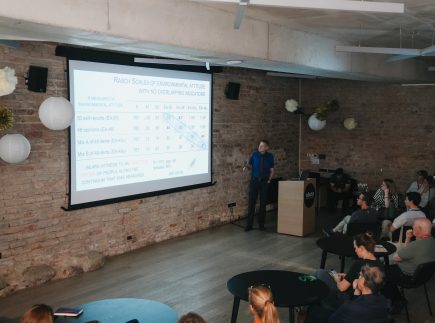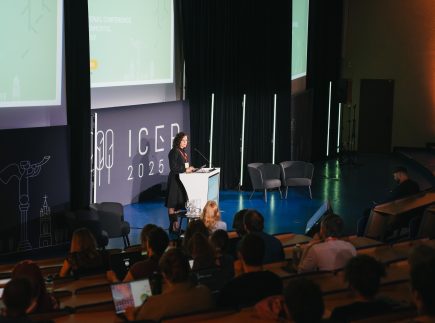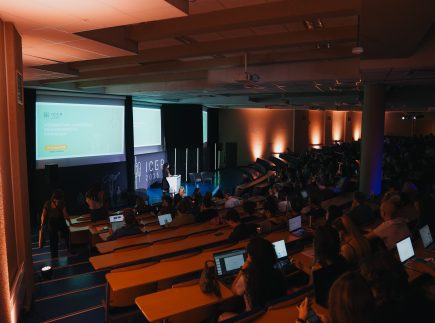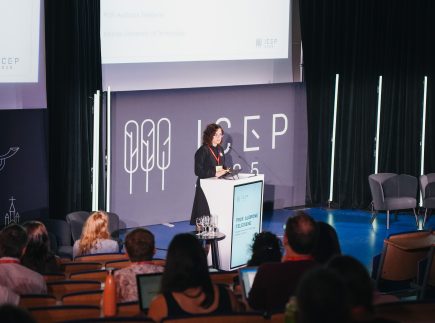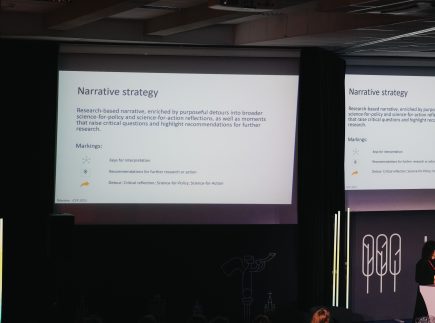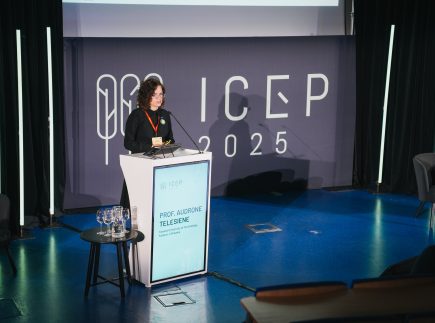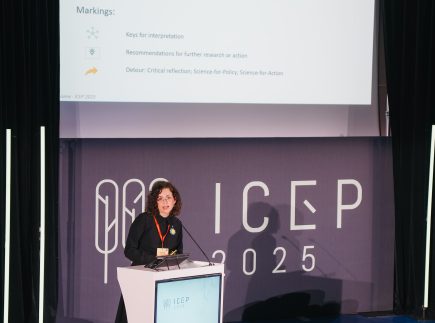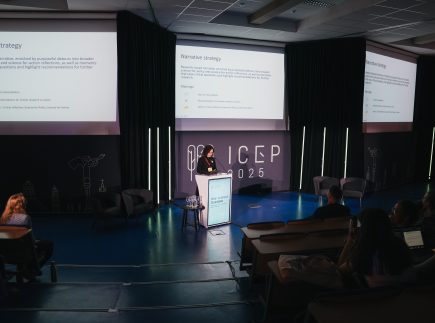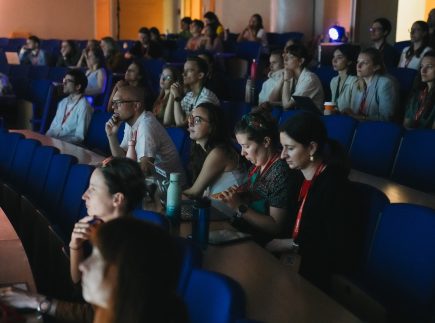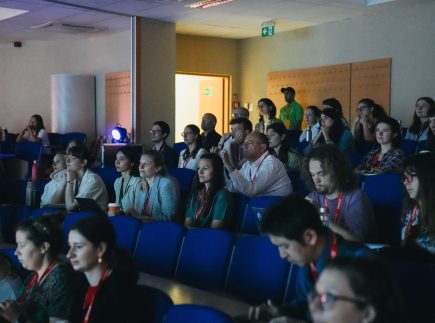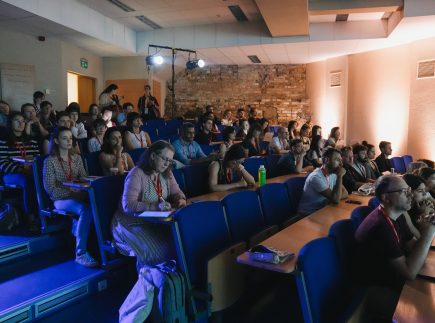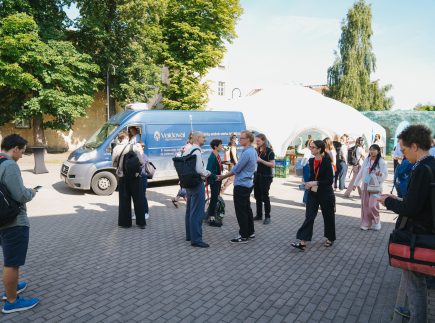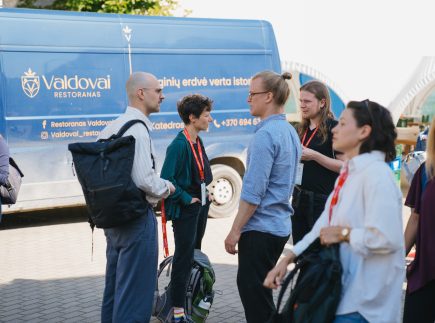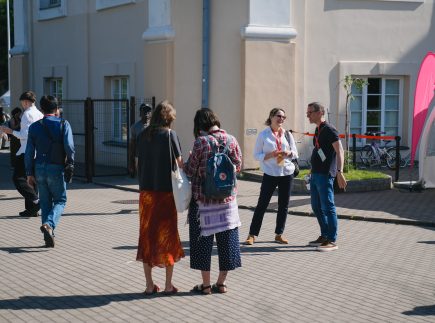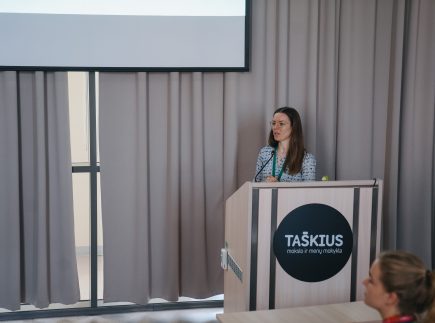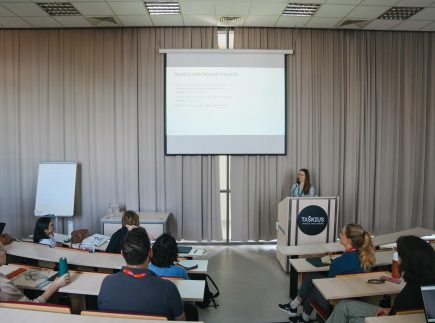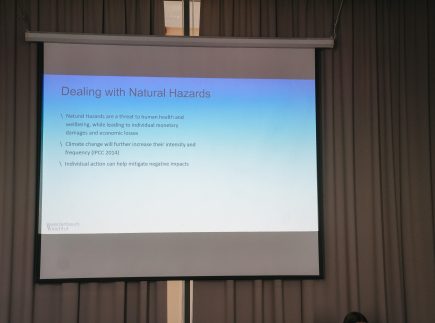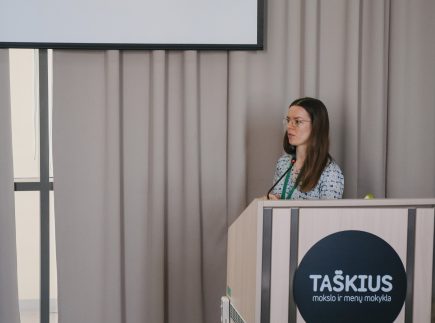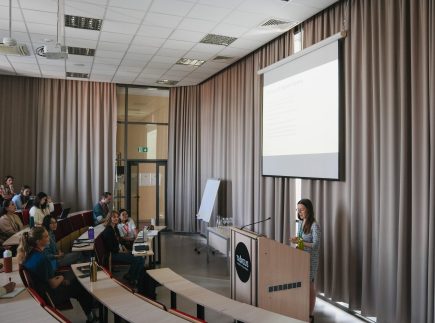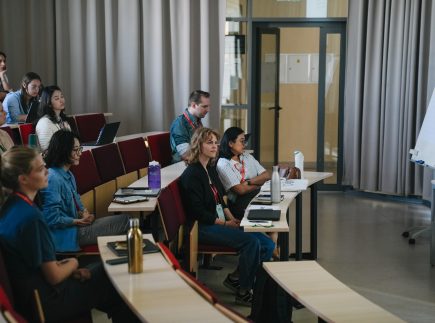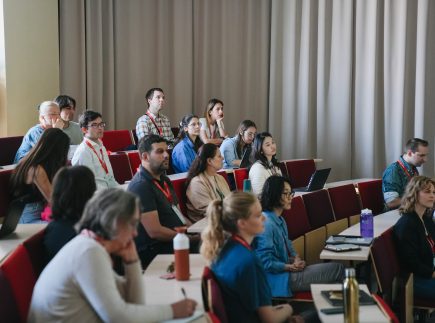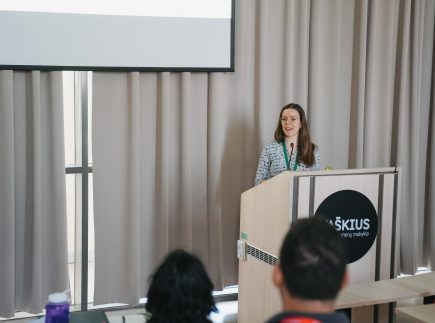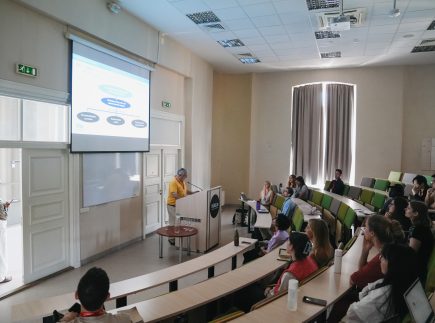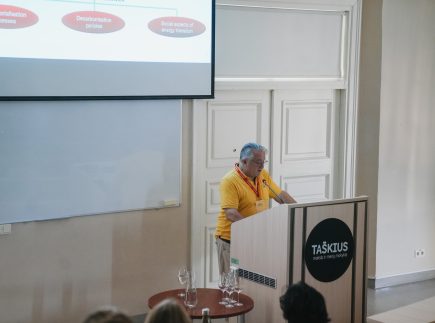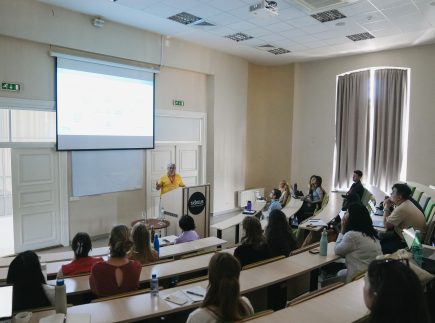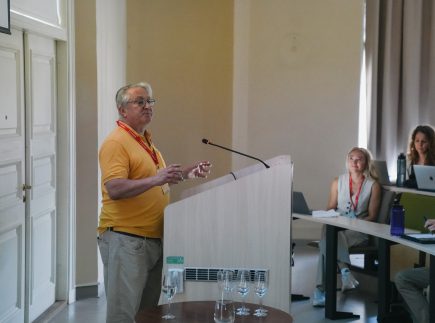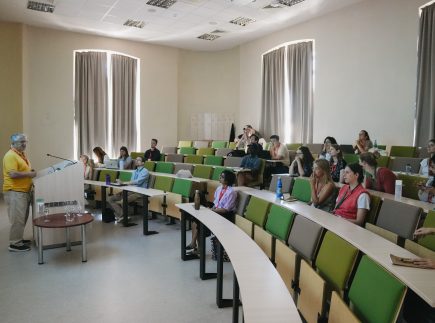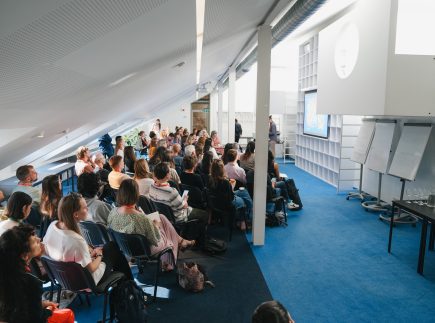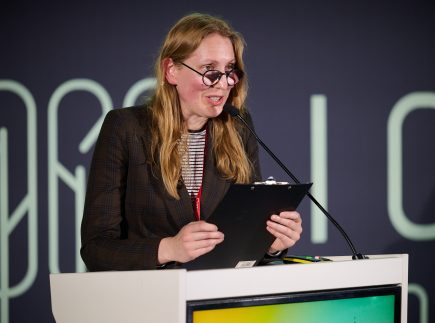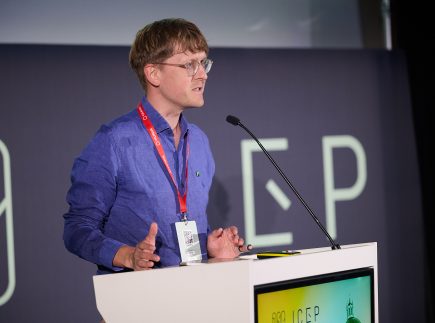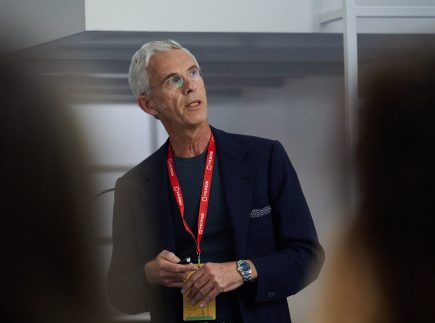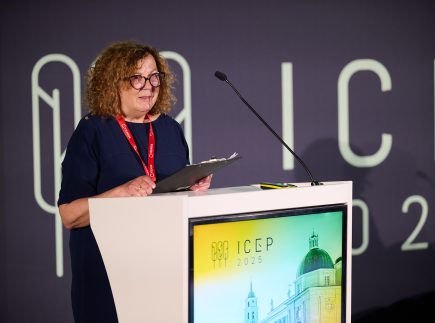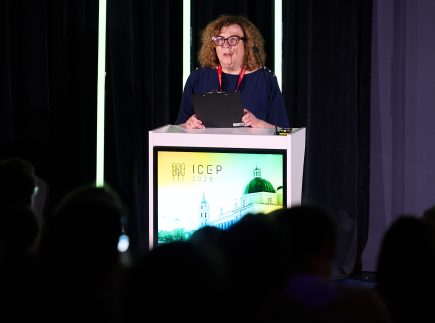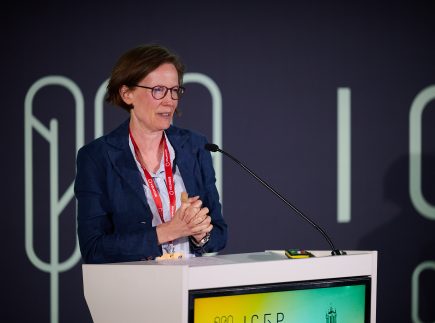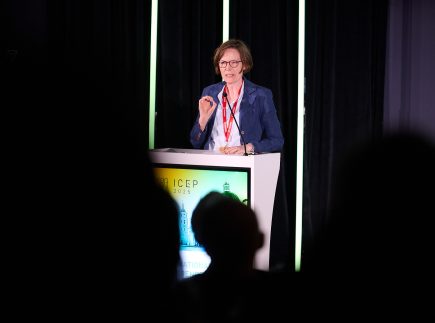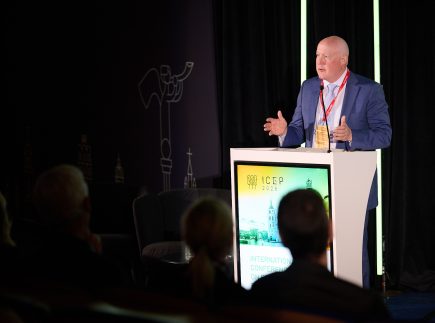The Environmental Psychology Research Center (APTC) at Mykolas Romeris University (MRU) organized one of the most significant international academic events in Lithuania this year – the International Conference on Environmental Psychology (ICEP 2025), which took place on June 15–18 in Vilnius. The conference brought together nearly 700 environmental psychology researchers, practitioners, policymakers, and sustainability experts from 50 countries.
ICEP 2025 served as a high-level academic platform to address pressing global environmental and social challenges through the lens of the human-environment relationship. The location was no coincidence – Vilnius has been named the European Green Capital for 2025, making it a symbolic setting for a conference aimed at fostering synergies between science and practice, inspiring diverse communities to work toward transformative environmental and social solutions.
The conference agenda and direction were shaped by Division 4 of the International Association of Applied Psychology (IAAP), which unites environmental psychologists worldwide. The scientific board – Prof. Sabine Pahl, Prof. Terry Hartig, Prof. Marino Bonaiuto, and Prof. John Thøgersen – contributed their experience and expertise to the organization of the event.
Hosted and curated by MRU’s Environmental Psychology Research Center, ICEP 2025 contributed to the university’s sustainability goals. Notably, it was the first time the ICEP conference was held in the Baltic region, enhancing the visibility of environmental psychology scholars from this part of the world.
The conference theme – “Addressing environmental crisis in the face of geopolitical challenges” – highlighted the interconnectedness of today’s global crises. Environmental, social, and geopolitical crises cannot be addressed in isolation and require holistic, science-based approaches.
Over 600 presentations were delivered on topics such as:
-
the climate crisis and global challenges;
-
environmental psychology and social issues;
-
energy, carbon footprints, and human behavior;
-
nature, health, and human well-being;
-
architecture, design, and human flourishing.
Across more than 100 thematic sessions, scholars discussed factors influencing pro-environmental behavior, links between ecological crises and mental health, psychological and physical recovery through restorative environments, behavioral interventions, sustainable energy, resource conservation, citizen engagement, and much more.
Thematic sessions were also led by APTC researchers and main conference organizers Dr. Audra Balundė and Prof. Dr. Rita Žukauskienė. They presented findings on ecological anxiety among young adults and the development of identity processes related to environmental concern in adolescence. Other APTC researchers also delivered presentations.
According to MRU Rector Prof. Dr. Inga Žalėnienė, who opened the conference, environmental psychology plays an increasingly critical role in today’s world, particularly as concerns about the future of our planet intensify. Ecological anxiety was widely discussed throughout the conference, with several presentations dedicated to this emerging area of research.
More information about the event, its program, speakers, and plenary session recordings can be found on the conference website, in the program, and in the book of abstracts.
You can view the full photo gallery here.
